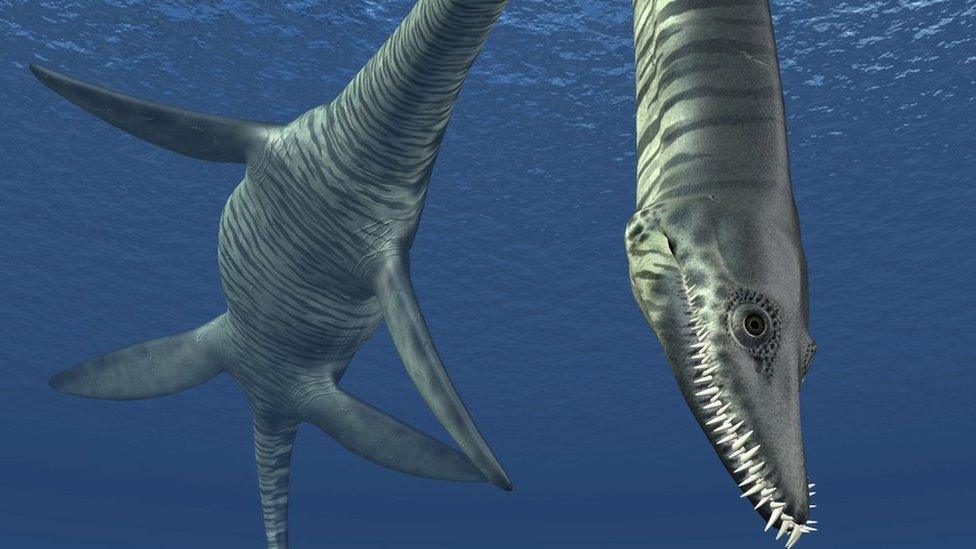Cambridge dinosaur bone probably from Roman fossil hunter
- Published
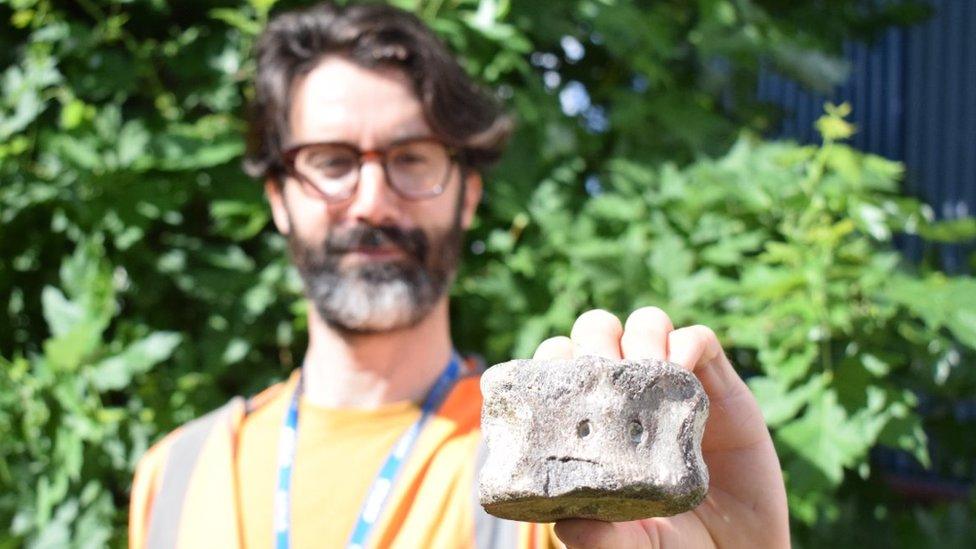
Archaeologist Matt Edwards shows off the ancient plesiosaur bone found in Cambridge
A dinosaur bone dug up on the site of a new development was probably part of an ancient Roman fossil hunter's collection, archaeologists said.
The vertebra from a plesiosaur, a "sea creature" that became extinct 66 million years ago, was found in the north of Cambridge.
Staff from Oxford Archaeology found the bone among a number of Roman items including pottery and animal bones.
They said it was likely to have been "curated" by an avid Roman fossil fan.
The items found at the two sites in the King's Hedges area of Cambridge date from the mid-2nd to the late 4th Century AD.
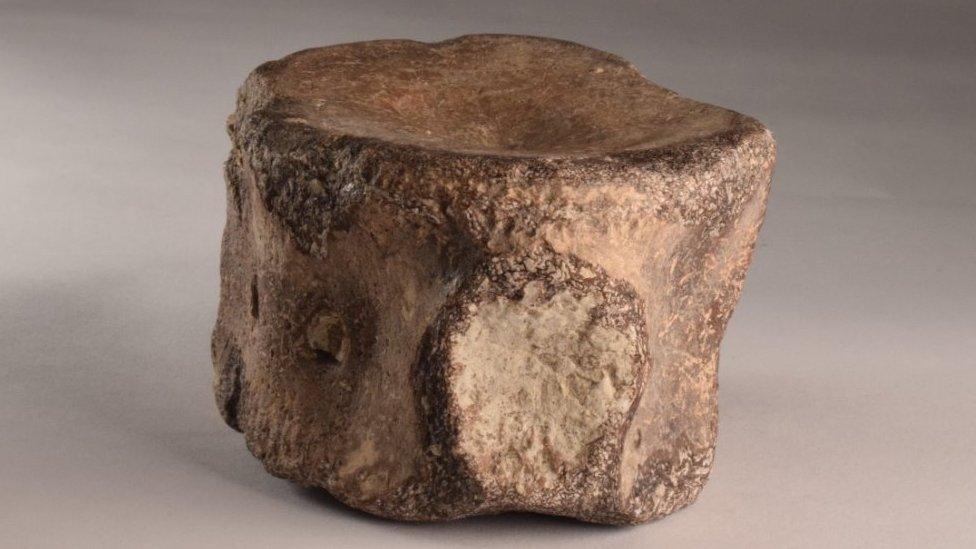
Archaeologists said the bone looked worn, as if it had been handled frequently during Roman times
The Roman remains were preserved beneath the existing car parks and garages at Aragon Close and Sackville Close.
"The shallow footings of the garages have meant that the archaeological features have been well preserved and many of the finds are in excellent condition," a spokesman said.
"The remains discovered consist of ditches and pits, a potential structure, and several Roman burials."
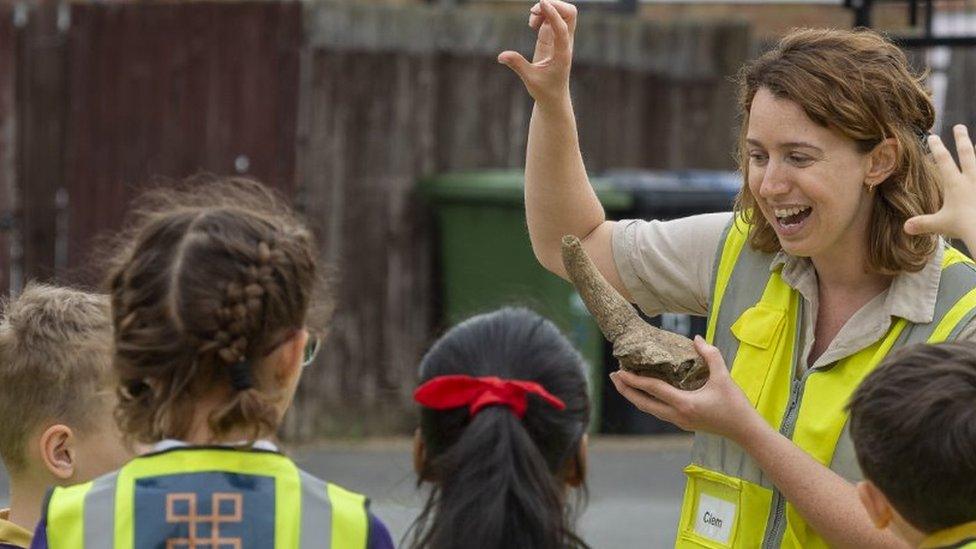
Clem Cooper from Oxford Archaeology East showing school children and excavated cattle horn
However, the discovery of the plesiosaur bone was "remarkable", the team said.
Andrew Greef, senior project manager at Oxford Archaeology, said: "As archaeologists we are often asked by members of the public if we have found any dinosaur bones and on this occasion, we actually found one."
He said the bone was worn in places, suggesting it had been handled often in the past.
"We've got enough evidence to show the Romans found these things, but you can only imagine what they might have thought they had," he added.
The items from the archaeological dig will eventually be given to Cambridgeshire County Council once they have been cleaned and recorded.

Follow East of England news on Facebook, external, Instagram, external and Twitter, external. Got a story? Email eastofenglandnews@bbc.co.uk, external or WhatsApp us on 0800 169 1830
Related topics
- Published26 April 2023
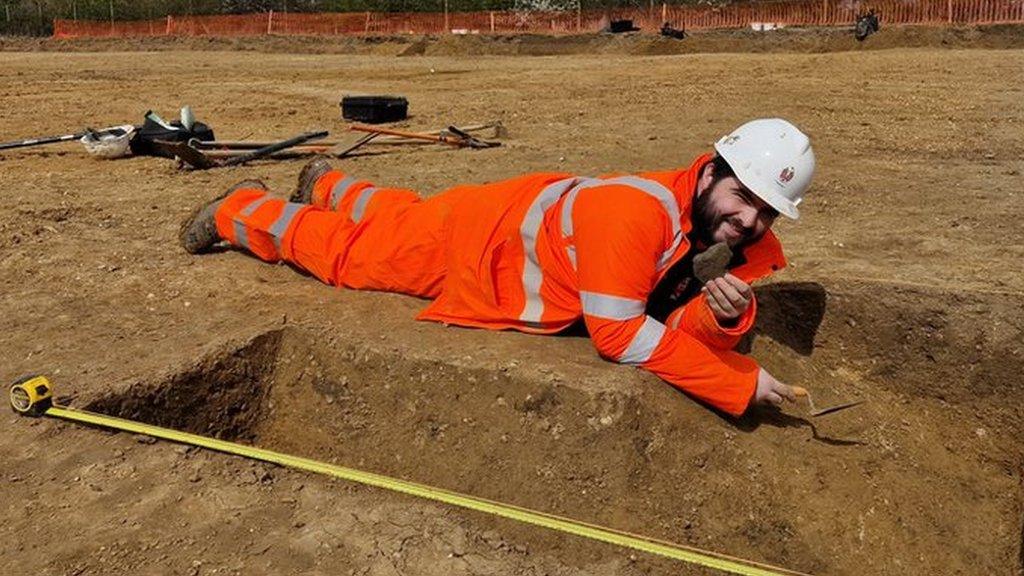
- Published7 December 2022
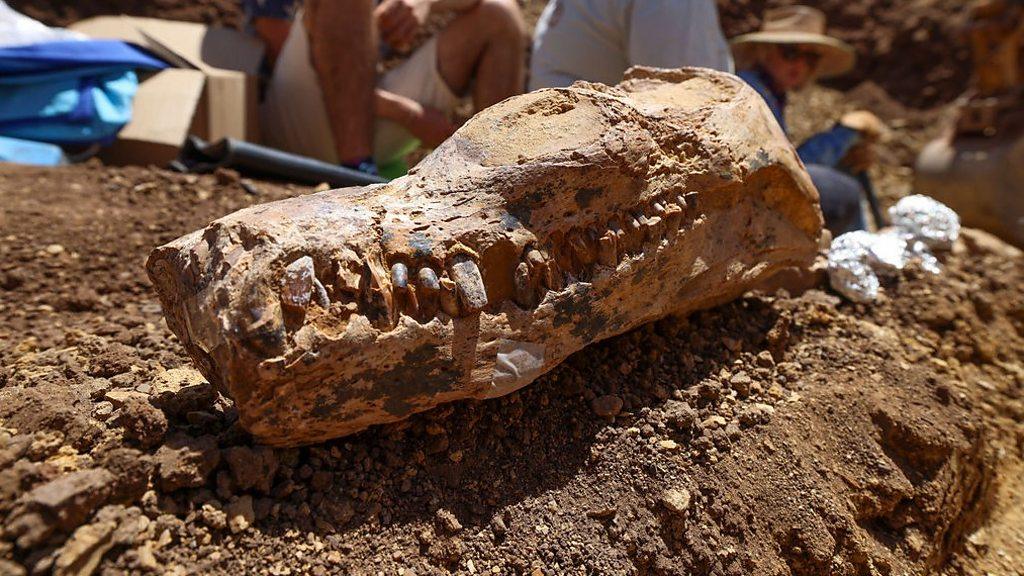
- Published22 January 2016
